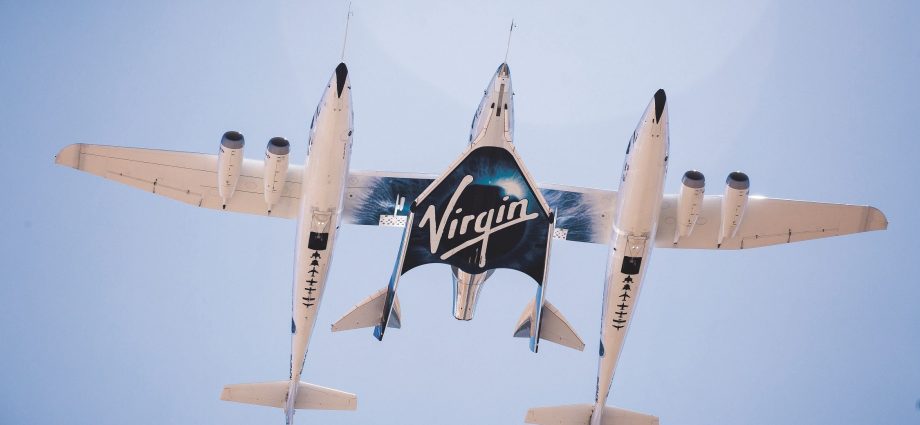Virgin Galactic has made history, becoming the first spaceliner to be certified by the US Federal Aviation Administration (FAA) to carry passengers. The adjustment of the operator’s license held by the company since 2016 comes as Virgin Galactic prepares for its last three test flights, including the first fully crewed test flight in the coming months.

Friday’s announcement comes on the heels of Virgin Galactic’s first powered test flight from its Spaceport America, New Mexico facility of its VSS Unity spaceplane on May 22, 2021, which was carried aloft by the VMS Eve mothership.
After being released, Unity fired its hybrid rocket engine, sending it on a suborbital trajectory at a speed of Mach 3 (1,985 knots, 2,284 mph, 3,675 km/h) to an altitude of 55.5 miles (89 km). This was the third Virgin Galactic flight to reach the edge of space and the first from New Mexico.
During the flight, engineers gathered data on the performance of the vehicle’s upgraded horizontal stabilizers and flight controls, as well as the cabin environment, to make sure they were working as predicted. The new flight systems give the pilot better control and will be incorporated in future Virgin Galactic spacecraft.
In addition to testing the flight systems, the May test included three paying research projects that were part of NASA’s Flight Opportunities Program. These microgravity experiments required the pilots to keep Unity on a predetermined trajectory.

“We’re incredibly pleased with the results of our most recent test flight, which achieved our stated flight test objectives,” Michael Colglazier, Chief Executive Officer of Virgin Galactic. “The flight performed flawlessly, and the results demonstrate the safety and elegance of our flight system. Today’s approval by the FAA of our full commercial launch license, in conjunction with the success of our May 22 test flight, gives us confidence as we proceed toward our first fully crewed test flight this summer.”
“The commercial license that we have had in place since 2016 remains in place, but is now cleared to allow us to carry commercial passengers when we’re ready to do so,” Virgin Galactic CEO Michael Colglazier told CNBC. “This is obviously an exciting milestone and a huge compliment to the team.”
Virgin Galactic’s stock jumped 38.9% in trading on Friday, its largest ever rise in a single trading day, to close at $55.91. Shares had tumultuous start to the year, with the stock climbing above $60 in February and then plummeting to a low near $15 last month before rebounding.
The company completed a 29 element verification and validation program for the FAA, clearing the final two FAA milestones with its most recent spaceflight test in May. Colglazier noted the last two milestones were specific to the spacecraft’s flight-control systems and inertial navigation systems.
Notably, Virgin Galactic chief astronaut trainer Beth Moses is the only nonpilot to fly on one of the company’s spaceflights. To date, five Virgin Galactic employees, including four pilots, have become FAA-recognized astronauts – as the U.S. officially views an altitude of 80 kilometers (or about 50 miles) as the boundary to space.

Virgin Galactic is considering reorganizing its flight schedule to launch Branson next over the July 4 weekend. The report came shortly after Jeff Bezos announced he would fly on Blue Origin;s first passenger spaceflight, planned to launch on July 20 – suggesting Branson may yet try to beat Bezos in personally flying to space.
Colglazier said the FAA approval means “the flight test program shifts now” to demonstrating “the cabin experience” of the spacecraft.
“I know there’s a lot of interest and speculation out there but we have not announced either the date nor the people that would be on those,” Colglazier said. “We approach this very methodically, with safety as the first consideration, and when we have all those boxes checked and all the steps in place – that’s when we can move forward and announce.”
Development delays have pushed back the company’s promised beginning of commercial service from mid-2020 to early 2022.
Source: Virgin Galactic


